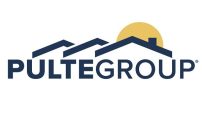Just as surely as you’ve very likely attended more web seminar programs, and seen more work-from-home backdrops of late than you’ll ever care to remember in the past six weeks, you’ve heard the terms applied to the moment.
Words we thought we knew the meaning of, the fear and pain and the anguish and the loss of balance they contain. And now—having experienced what we have, and facing what we haven’t—we can only wish we’d never used them so cavalierly, so superficially, as we did.
Unprecedented, uncharted, unparalleled, unrivaled, epic, unmatched, freakish, extraordinary, preternatural … flying-blind, dead-reckoning, a roll-of-the-dice, a shot-in-the-dark … no-playbook, etc. you know the ones, and you’ve heard them again and again and again of late.
Well, we’re here. The words all apply, and yet none of those terms can quite express how the moment dwarfs the entirety of all our instincts, practice, wisdom, received knowledge, experience, and insight about lives and livelihoods. It humbles us before what we all don’t know yet. What we need to learn, and what we will learn.
As such, this is a time for leaders – whatever the size of your firm, small, medium-sized, or enterprise. Supply, demand–even throw in the “invisible hand” of central bank policy, and the anima of collective psyche–don’t render a clear picture of what we face.
Leadership–the kind that gets people to feel things and act in ways they’d never before imagined they could–is its own new playbook for the moment. Nietsche says “He who has a why to live for can bear almost any how.”
How to endure, to survive, and, at last, to thrive through the next patch of weeks, perhaps months, minus the norms and telltales of exuberance, of come-what-may derring-do, of collective societal mojo is a “how” only Nietsche might have grasped when he wrote those words.
To thrive, to prosper as we will will take leaders.
Leaders will not, as it may be surmised, seek now to restore “business as usual.”
We may think we want “normal,” a return to the way things were, the status quo. But, remember, the way things were was is not good enough. From this crisis, we can, we will be better than what was.
From this crisis we have learned to do in six weeks what we talked about doing for six years.
We’ve learned to subtract friction that almost inevitably roughed up buyers in their journey from contact to contract.
We’ve learned to apply robust and easy-to-use and visually exciting technologies to user experience platforms that close the gap from shopping to buying, bringing at long last, home buyers to the Holy Grail moment of “click-to-buy” after configuring the new home of their dreams.
We’ve learned how to love the customers who’ve managed–thus far–to hew to their plan to be our customers through a backdrop of calamity and fear.
We’ve learned how to–in spite of strictures and constraints, of supply disruption, and financial shocks–continue to deliver new homes to a market and a society that needs them as much as they need just about anything.
We’ve learned more about how to keep people safe and healthy and stay focused on safeguarding their fellow teammates and customers from harm than we ever might have imagined.
We’ve also learned to take time, materials waste, and costly manual labor out of the building process while improving the precision and quality of the building itself.
We’ve learned something else.
Business as usual, the status quo, the way things were, and a return to normal will not suffice.
Because we’ve learned too that producing ever-greater numbers of people and households “priced out” of new construction and community development is not a sustainable business model.
Because we’ve learned that letting our skilled human resource “age out” of our talent universe at a rate six-times faster than we have new, next generation, entrants into careers is also not a sustainable business model.
Because we’ve learned that ever-more-prohibitive local land use policies in more localities as a way to block new, safe, decent, healthy, attainable housing solutions for “essential” workers, like teachers, police, rescue, sanitation, public works, grocery, etc. is also not a sustainable business model.
The COVID-19 learning curve has been steep, deep, shocking, and stressful. And it’s also been one of the fastest learning curves we’ve ever hurdled along, coming as it has during exponentially accelerated technological and data advance.
This is why it’s a time for leaders, because we, as workers, as members of society, and as members of families and communities need to do things we may never imagined we’d have to do, or know how to do.
A parting story on purpose, borrowed from Kurt Vonnegut’s “Cat’s Cradle.”
“In the beginning, God created the earth, and he looked upon it in His cosmic loneliness.
And God said, “Let Us make living creatures out of mud, so the mud can see what We have done.” And God created every living creature that now moveth, and one was man. Mud as man alone could speak. God leaned close to mud as man sat up, looked around, and spoke. Man blinked. “What is the purpose of all this?” he asked politely.
“Everything must have a purpose?” asked God.
“Certainly,” said man.
“Then I leave it to you to think of one for all this,” said God.
And He went away.”
Unprecedented?
We learn–on the backs of very smart people who’ve come before us–that the four most dangerous words in business are “this time it’s different.”
Or as Ecclesiastes notes:
“What has been will be again,
what has been done will be done again;
there is nothing new under the sun.”
Big company? Little pickup truck firm? Medium-sized builder? It doesn’t matter. It’s a time for leaders all around if we’re to hope for a housing-led recovery.



